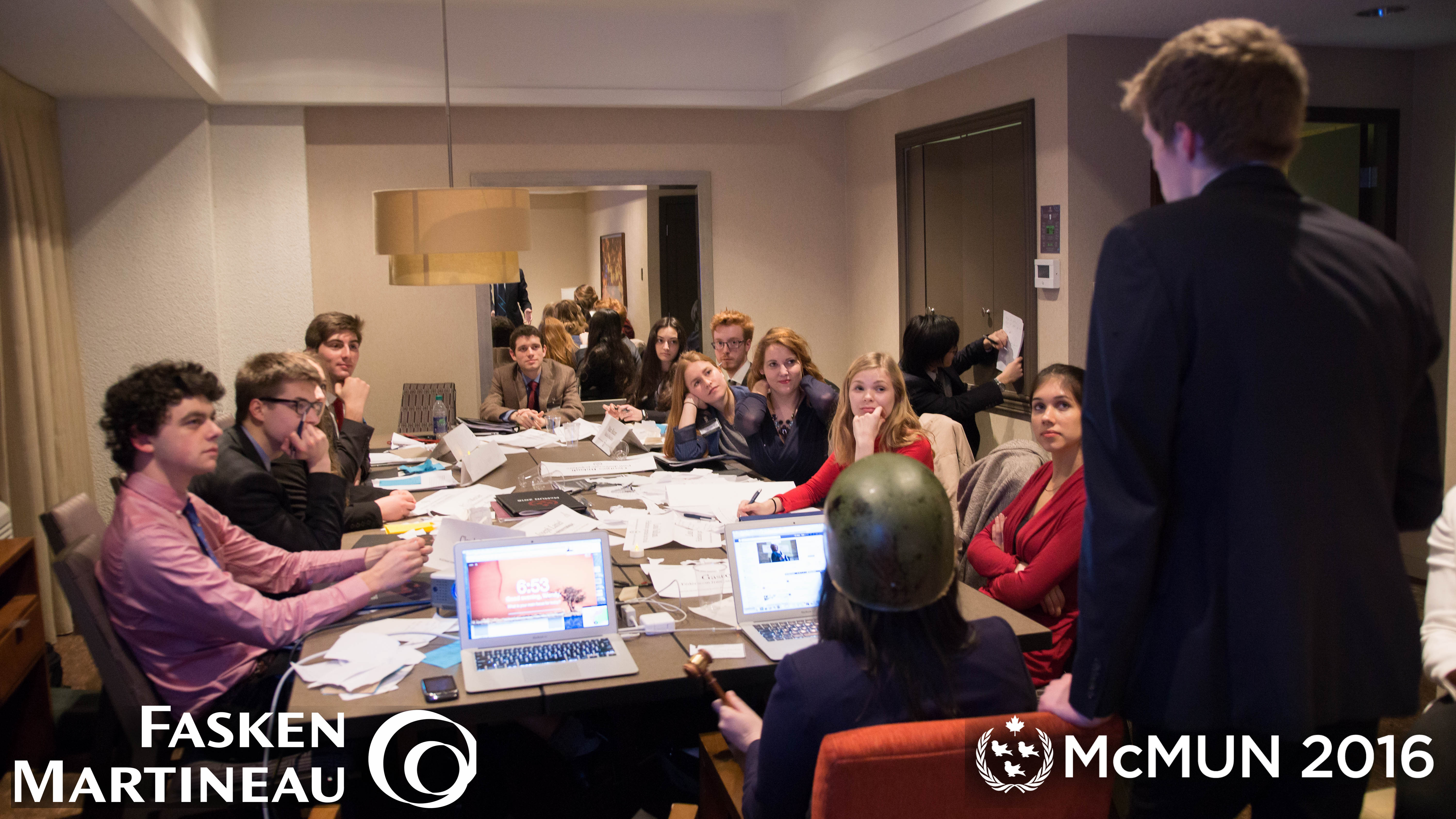McMUN and the “Marseillaise”

The walls of Le Centre Sheraton have doubtlessly seen many things, but executions, espionage and factory raids surely do not make up the grand majority. The French Resistance Bilingual Committee introduced these eccentricities to the building during its sessions with a pace and dynamic narrative that serves as an example of what a crisis committee at McMUN ought to be. The success of the committee was formalized this evening at the dias awards, as they were honoured with the prestigious title of “Best Crisis Committee” of the conference.

How exactly is the greatness of a crisis committee measured, and how is this related to the overarching values that this international conference and its staff prioritize and perpetuate? The tone of the committee sessions is quite literally set by the crisis staff, individuals that pride themselves on pushing delegates to their intellectual and diplomatic limits. The timeline of the “French Resistance” committee begins in May of 1943 in an occupied France, where political indecision was accentuated by regional cleavages. For the delegates, all was fair in the name of patriotic love, and thus all was fair in war for the crisis committee. During these committee sessions, crisis staff challenged their delegates to utilize every resource they had at their disposal by introducing internal dissent, murder, judicial trials, mistakes in military strategy and many other crises to an already overwhelmingly tense simulation.
The delegate’s responses to each of these separate issues showed a resolute commitment to liberate their nation and their people. Substantive directives were passed during times of complete isolation, blackout and under severe time constraints. Directives proposed and passed ranged from guerilla warfare initiatives à la “Inglourious Basterds” to comprehensive proposals on capturing key cities like Marseilles and Toulon. Even the theme of the conference, gender equality, was addressed through the directives passed, which illustrated through both song and impassioned speech the vital importance of women in resistance movements and espionage.
The progress of the French Resistance Committee were emblematic of one value intrinsic to the entirety of McMUN: that of unwavering commitment. In other words, it attempted to emulate the French Resistance itself: a flame that could not, and would not, burn out.
Photo credits to McMUN/Philip Nguyen-Powanda
